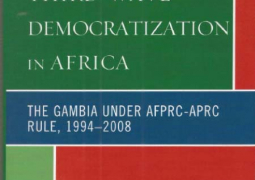The latest Monetary Policy Committee report by the Central Bank of The Gambia has given a bleak or somewhat grim picture of the state of our economy.
The imbalances in the economy such as the huge shortfalls and deficit emanating from the expenditure-income gap and the balance of payments drop are indicative of a bad omen in the economic growth and national development of The Gambia.
These imbalances have created the room for rapid inflationary flight on prices of goods and services, as well as swelling debt burden to the national coffers.
Giving just a tip of the iceberg, the report states that the government’s borrowing from local banks and other domestic sources rose to D19.1 billion, an increment of 30.4 per cent from a year earlier.
As a result of increased domestic borrowing, interest payment has increased to 81 per cent which, in turn, led to the increase in government’s recurrent expenditure to D3.9 billion or by 17.1 per cent.
The increase in government’s domestic borrowing and its attendant high interest payment alone should be a concern for all of us as regards the economic growth and development of The Gambia.
Even the Central Bank has earlier on raised the alarm over the issue of sustainability of the government’s rising domestic debt stock in recent years. Just last year, 25 per cent of the country’s hard-earned revenue went to servicing domestic loans.
Interest payment at such high rate continues to hinder the government’s efforts to channel funds to development areas.
Besides, though the Dalasi is said to have appreciated, inflation continues to increase unabatedly even beyond the expected level of 5 per cent and it is forecast to remain high.
Failure to act against these heightened inflationary pressures may cause prices to accelerate further and the high inflation expectations to become more entrenched.
The government needs to be more financially disciplined and the authorities at the Central Bank and the Ministry of Finance need to take very drastic policies to correct The Gambia’s economic situation.
All the necessary steps should be taken urgently, as it is only by taking such appropriate corrective policies that the unfavourable fiscal trend can be brought under control.
The International Monetary Fund has said it all when it warned that when the loose fiscal situation of the Gambia government persists, it would take a number of years to put things back in order.
Therefore, there is a need to strike while the iron is hot, for it is essential that things are fixed up properly before it is too late.
“Necessary
steps should be taken to fix up the fiscal imbalances in the country’s economy”
The
Point


